When planning an Annapurna Base Camp trek, many travelers overlook the significant advantages of hiring a porter. These skilled individuals not only lighten the physical load by carrying gear but also enrich the trek with their local insights and emergency support. With each porter able to manage up to 10 kg for every two trekkers, adventurers can fully enjoy the stunning scenery and vibrant culture of the region. However, understanding the intricacies of porter services can make all the difference in the overall experience. What else should trekkers consider to maximize this opportunity?
Key Points
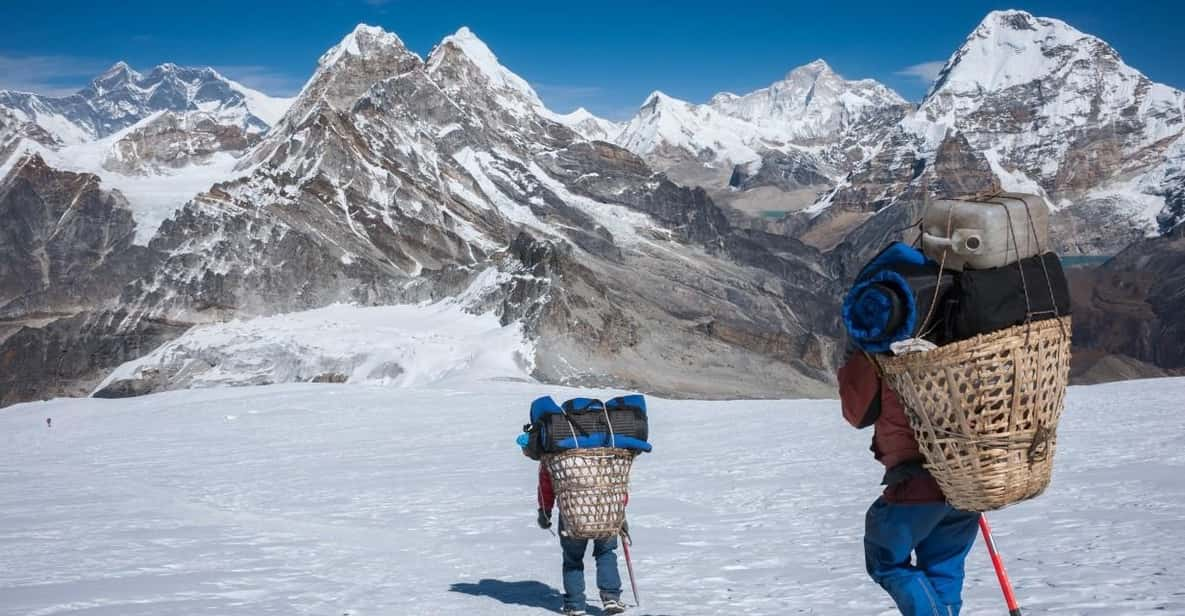
- Porters carry essential gear and a maximum of 10 kg per person, allowing trekkers to enjoy the scenery without heavy loads.
- They provide fresh food and nutritious meals, enhancing the trekking experience throughout the Annapurna region.
- Local porters offer valuable knowledge of the terrain and culture, enriching your journey to Annapurna Base Camp.
- Hiring a porter ensures emergency support and assistance during unexpected challenges along the trek.
- Each two trekkers typically share one experienced porter, ensuring personalized attention and support during the trek.
It's also worth checking out some other tours and experiences nearby.
Trek Overview and Highlights
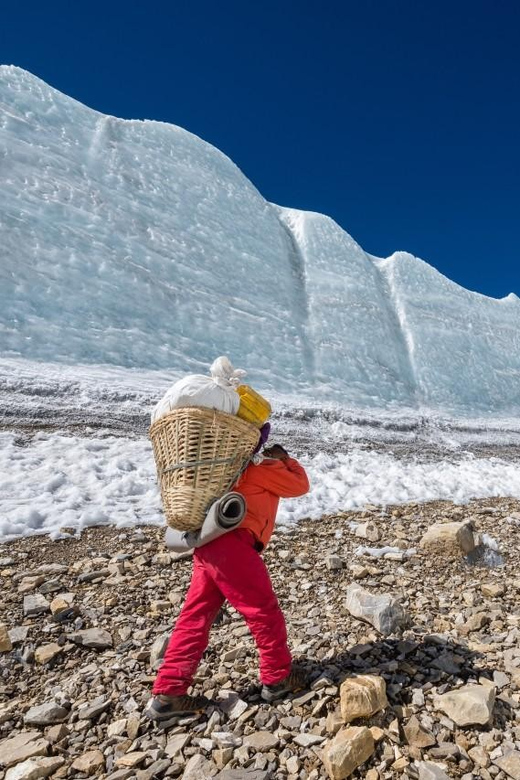
Trekking to Annapurna Base Camp offers adventurers stunning views of some of the highest peaks in the Himalayas, including Annapurna I and Machapuchare, making it a must-visit destination for nature lovers and outdoor enthusiasts.
Nestled at 4,130 meters (13,549 feet), ABC showcases breathtaking mountain landscapes, lush forests filled with vibrant Rhododendrons and oaks, and charming hamlets that dot the trail.
As trekkers journey through this remarkable terrain, they encounter diverse flora and fauna, adding to the experience.
The trek is well-marked and accessible, catering to various skill levels.
With each step, trekkers enjoy the natural beauty and rich culture of the region, creating memories that last a lifetime.
Detailed Itinerary
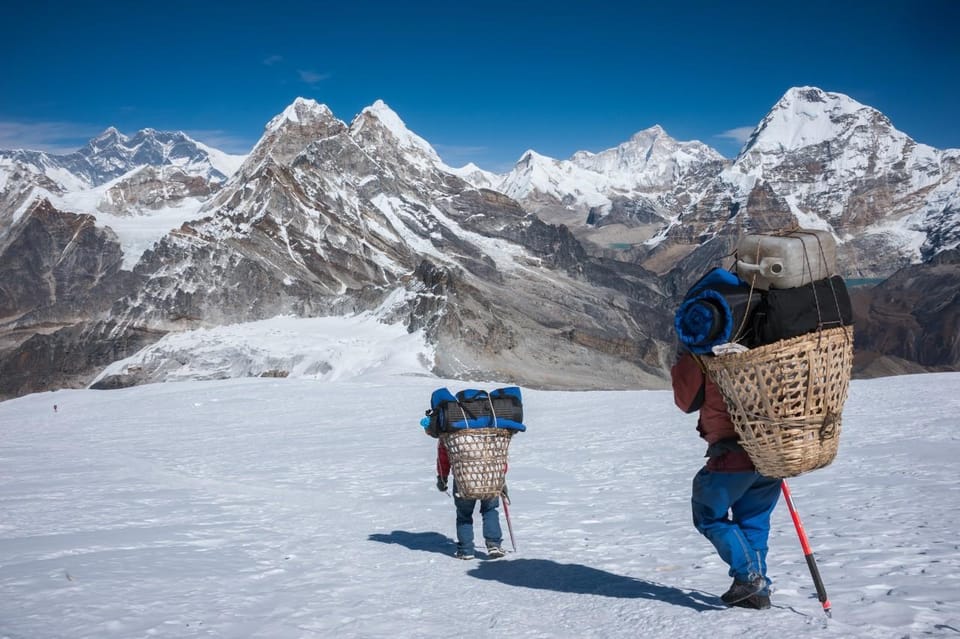
The journey to Annapurna Base Camp unfolds over eight days, each packed with adventure and stunning scenery as trekkers make their way through picturesque villages and breathtaking landscapes.
On Day 1, trekkers drive from Kathmandu to Pokhara. Then, on Day 2, they head to Nayapul and trek to Ghandruk.
Day 3 takes them from Ghandruk to Chhomrong, followed by a trek to Dovan on Day 4.
On Day 5, the group ascends to Annapurna Base Camp via Machapuchare Base Camp.
Day 6 involves trekking back to Bamboo or Sinuwa.
Day 7 features a short trek to Siwai before returning to Pokhara.
Importance of Porters
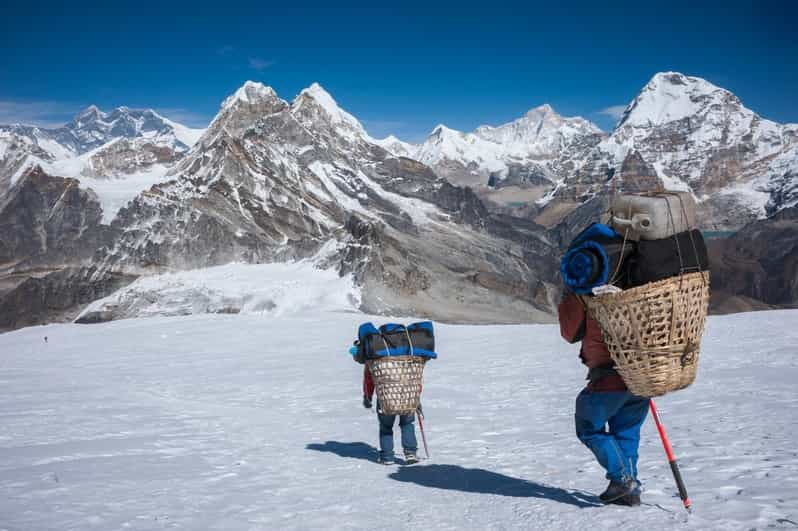
Porters play a crucial role in enhancing the trekking experience by carrying essential gear and supplies, allowing trekkers to focus on the stunning scenery and enjoy the journey more fully. They not only lighten the load but also ensure that trekkers have everything they need along the way.
Here are a few key contributions porters make:
-
Gear Transportation: They carry tents, sleeping bags, and cooking equipment.
-
Food Supply: Porters manage the transport of fresh food, ensuring nutritious meals.
-
Emergency Support: In case of unexpected challenges, they provide assistance.
-
Local Expertise: Their knowledge of the terrain and culture enriches the trekking experience.
Porter Services Explained
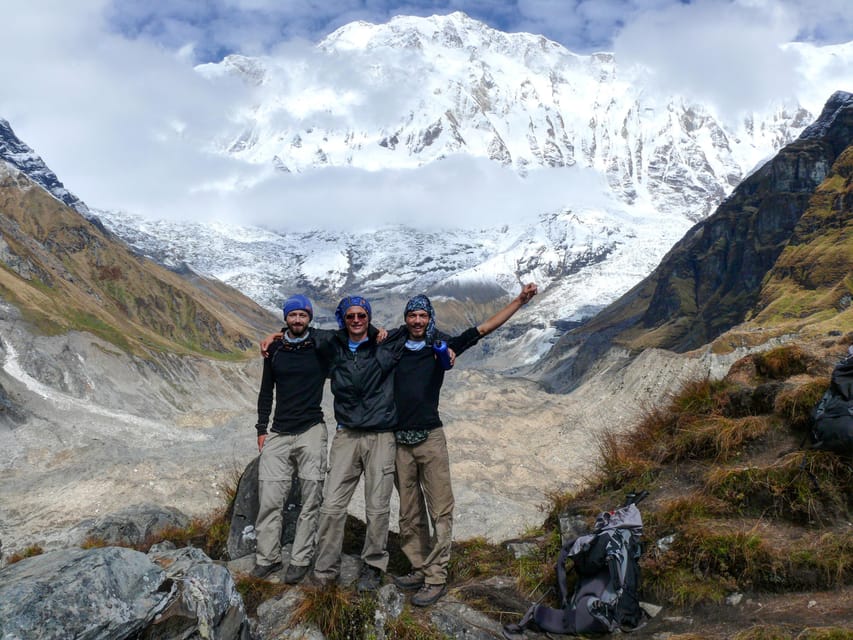
Understanding the various porter services available enhances the overall trekking experience, providing trekkers with both comfort and support throughout their journey.
Trekkers typically get one experienced porter for every two people, ensuring that everyone receives ample assistance. These porters carry a maximum weight of 10 kg per person, allowing trekkers to enjoy the scenery without the burden of heavy packs.
The services include not just the porter’s salary but also their food, accommodation, transport, and insurance. This comprehensive package ensures that the porters are well taken care of, which in turn allows them to focus on providing excellent support.
With their help, trekkers can fully enjoy the breathtaking beauty of the Annapurna region.
Costs and Inclusions
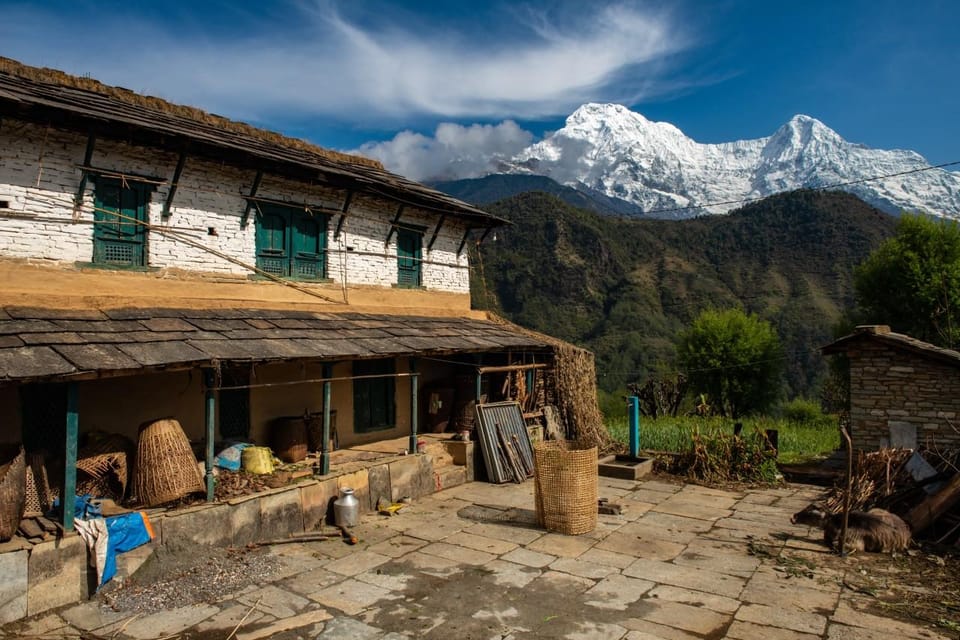
Trekking to Annapurna Base Camp comes with a variety of costs and inclusions that ensure a comfortable and enjoyable experience. Trekkers can expect to budget for essential items, including:
-
Meals: Full-board meals during the trek, averaging $20 per day.
-
Accommodation: Six nights at trekking lodges, costing around $5 per night.
-
Trekking Equipment Rental: Sleeping bags available for NPR 200 each day.
-
Transfers: Round-trip tourist bus from Kathmandu to Pokhara at $12 one way, plus a private vehicle transfer to Nayapul for $30.
These costs provide a comprehensive package that covers vital aspects of the trek, allowing trekkers to focus more on the breathtaking scenery and adventure ahead.
Booking Process
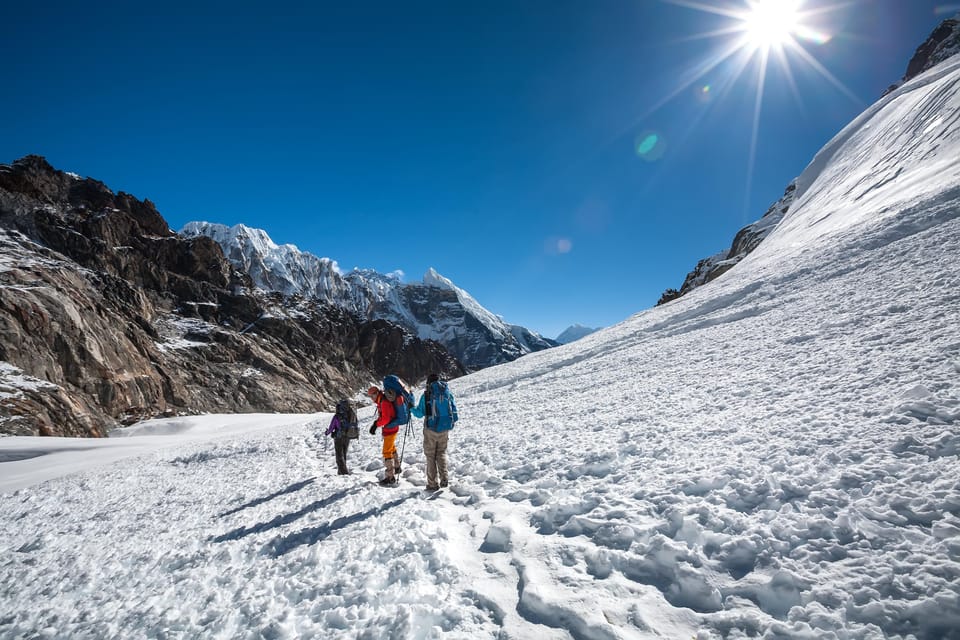
Booking a trek to Annapurna Base Camp is a straightforward process that allows adventurers to easily secure their spot for an unforgettable journey.
Travelers can start by choosing their preferred itinerary and selecting the number of trekkers in their group. With prices starting at Kč 3,466 per person, it’s essential to review the inclusions and costs before proceeding.
The booking platform offers a reserve now and pay later option, so trekkers can secure their place without upfront payment. Plus, they can enjoy free cancellation up to 24 hours in advance for a full refund.
Whether opting for a private group or a standard trek, the process ensures flexibility and convenience for everyone involved.
Tips for Trekking
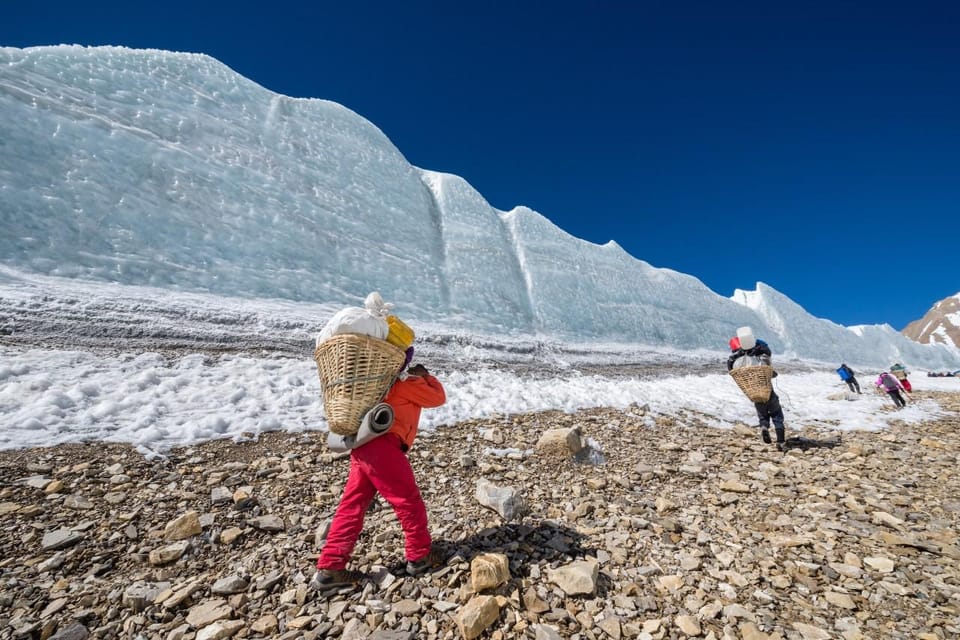
Preparing for the Annapurna Base Camp trek requires careful planning and a few essential tips to ensure a safe and enjoyable adventure. Here are some key tips to keep in mind:
-
Stay Hydrated: Drink plenty of water throughout the trek to combat altitude sickness.
-
Layer Up: Wear breathable, moisture-wicking clothes to adapt to changing weather conditions.
-
Pack Wisely: Limit your pack to essentials, as porters can carry up to 10 kg per person.
-
Know Your Limits: Listen to your body and take breaks when needed to avoid exhaustion.
Safety and Preparedness
Ensuring safety and preparedness during the Annapurna Base Camp trek is crucial for a successful and enjoyable experience.
Trekkers should acclimatize properly to avoid altitude sickness, which can be serious at high elevations. It’s essential to carry a first-aid kit, including necessary medications, and to stay hydrated throughout the trek.
Wearing layered clothing helps adapt to changing weather conditions, while good-quality trekking boots provide comfort and support.
Trekkers should also inform someone about their itinerary and expected return.
Hiring an experienced porter can enhance safety by managing gear and offering local insight.
Here's a few more nearby tours and experiences we think you'll like.
Frequently Asked Questions
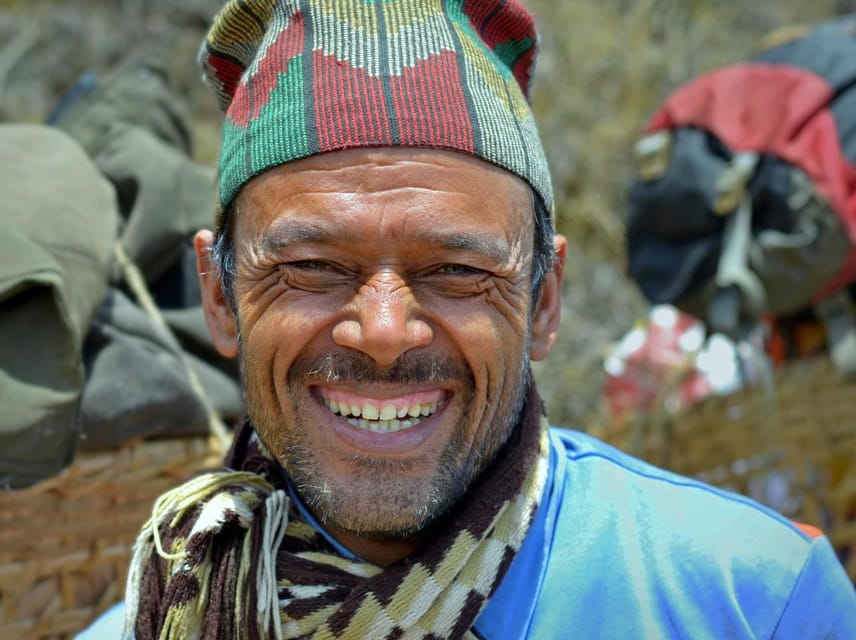
What Should I Pack for My Porter to Carry?
When packing, she suggests including essentials like clothing, toiletries, and snacks. It’s crucial to keep the weight under 10 kg, ensuring her porter can comfortably carry everything needed for the trek.
Can I Hire a Porter on Arrival in Nepal?
Yes, travelers can hire a porter upon arrival in Nepal. Local agencies provide experienced porters, ensuring trekkers enjoy their journey while minimizing the burden of carrying heavy loads. It’s a popular and convenient option.
How Do I Communicate With My Porter During the Trek?
To communicate with the porter during the trek, trekkers can use simple English phrases, gestures, or translation apps. Establishing a friendly rapport enhances understanding, making the journey enjoyable and ensuring everyone stays on the same page.
Are Porters Trained in First Aid?
Most porters aren’t formally trained in first aid, but many have basic knowledge from experience. They can assist with minor injuries and provide support, though trekkers should always carry their own first aid supplies for emergencies.
What Happens if My Porter Gets Injured?
If a porter gets injured, they’ll receive immediate assistance from fellow trekkers or guides. The team evaluates the situation, providing necessary care and arranging for transportation to a medical facility if required. Safety’s always a priority.
Not for you? Here's more of our most recent tour reviews happening neaby
- An All Inclusive Day Tour Of Kathmandu Valley
- From Kathmandu/Pokhara: 2-Day Bandipur (Living Museum) Tour
- From Kathmandu: 1 Hour Panoramic Everest Flight
- Wildlife: 3 Days Chitwan National Park Tour From Kathmandu
- Kathmandu to Pokhara Transfer by Scorpio Jeep
- Pokhara To Kathmandu
- Dhulikhel Hiking Tour: A One-Day Nature Escape
- From Kathmaandu: 3 Day 2 Night Chitwan National Park Tour
- Jungle Journey: 3-Day Chitwan Safari Tour From Pokhara
- Kathmandu to Chitwan Bharatpur Flight Ticket One Way
- 2 Nights 3 Days Chisapani Nagarkot Trek Kathmandu
- Kathmandu: 3-Day Chitwan Safari Tour With Hotel Transfer
- 3-Day Chitwan Safari Tour With Hotel Transfers, Kathmandu
- Kathmandu: 3-Day Chitwan National Park Safari Tour Package
- Chitwan Wildlife Adventure:Discover Nepals Jungle Treasures
Recap
To sum it up, hiring a porter for the Annapurna Base Camp trek not only eases the physical burden but also enriches the entire experience.
With their knowledge, support, and ability to provide fresh meals, trekkers can truly enjoy the stunning scenery and vibrant culture.
By considering the importance of porters and understanding the booking process, adventurers can ensure a memorable and enjoyable trek in one of the world’s most beautiful regions.
